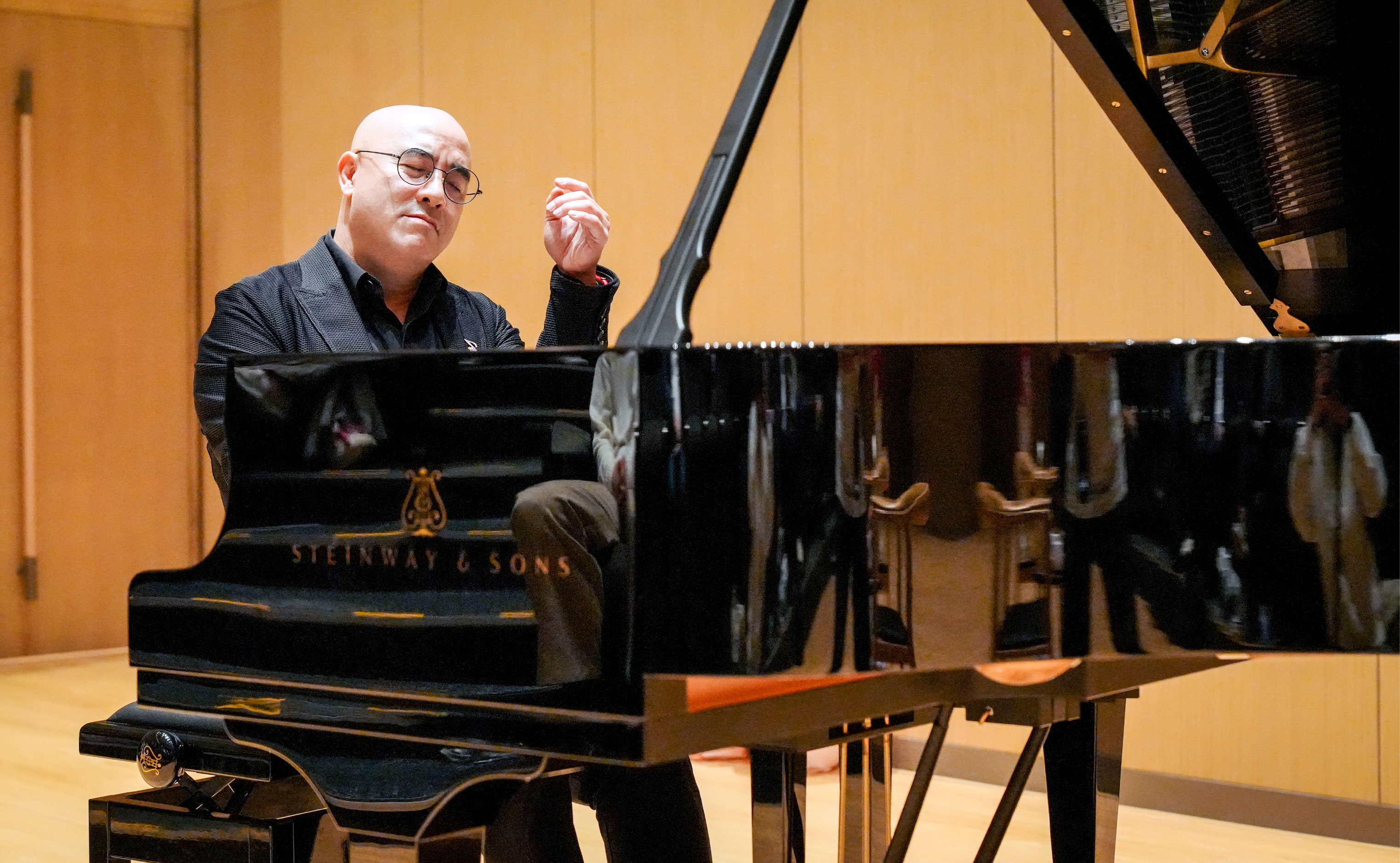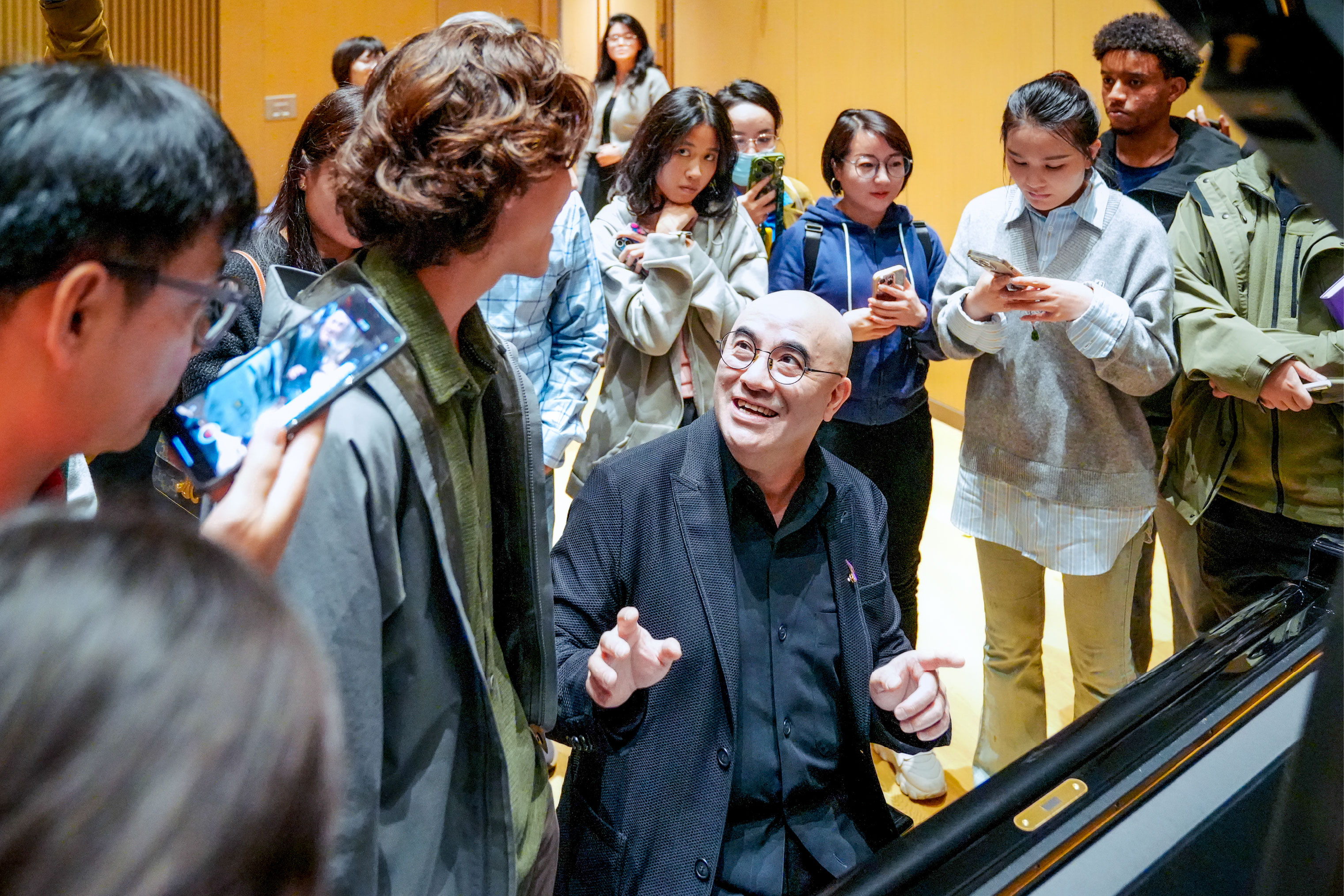On November 6, world-renowned pianist Kong Xiangdong returned to NYU Shanghai for a deeply moving conversation with Vice Chancellor Jeffrey Lehman, exploring the power of music, resilience, and the human spirit.
More than 400 attendees filled the auditorium, with some traveling from outside Shanghai to join the event. The talk was hosted by Vice Chancellor Lehman, introduced by Dean of Arts and Sciences David Atwill, and facilitated by Area Head of Performing Arts Cheng Yue.
Kong first visited campus earlier this year to speak and perform at NYU Shanghai’s 2025 commencement, where he was awarded the Chancellor’s Medal and appointed as professor-at-large. “Tonight’s dialogue is a chance for our community to get to know him more intimately,” Dean Atwill said, “through his art, his life, and his courage.”

Kong reflected on his over four-decade journey with the piano: starting during his childhood in 1970s Shanghai, where his mother drew a paper keyboard for him to practice on before he finally got his first real piano at age seven.
The elderly woman they bought the piano from sold it out of desperation, Kong recalled, adding that she cried as if seeing off a loved one. “Only later did I realize how much that piano meant – not just to her, but to me,” he said. “It carried love, sacrifice, and human connection.”
Kong practiced relentlessly on that piano, eventually earning admission to the Shanghai Conservatory of Music’s primary school and later representing China at the 1986 International Tchaikovsky Competition in Moscow.
Competing with more than a hundred performers from nearly fifty countries opened his eyes to the world, he said. “Even with the language barrier, we bonded through music,” he recalled, adding that he remains friends with some of the people he met there to this day. “That’s what music is about. It’s not just about playing notes, but opening your heart, your ears, and your mind to others.”
Yet alongside his rise to fame came years of silence and deep depression, where he isolated himself completely: “I changed my phone number 21 times to avoid people; even my mother had to leave food outside my door,” he recalled. “The only thing that kept me company was the piano. I sometimes slept underneath it, as seeing it when I woke up made me feel safe.”
He said the piano was what helped him heal. “I started composing for my friends in real time,” he said. “When I played, I could feel their emotions resonate with mine. Music became my way of reconnecting with the world.”
Soon, he began inviting friends to “set challenges” for him, asking them to give four random notes from which he would compose instantly. Many were moved to tears by the result. “Through that process, I realized that music can heal. It can comfort, it can awaken.”

In 2024, Kong collaborated with researchers from Tsinghua Laboratory of Brain and Intelligence, launching a three-year study on music therapy. “Our bodies are full of miracles,” Kong said. “From a neuroscientist’s perspective, studying the human brain is an incredible journey.”
Addressing the audience, Kong had these words of advice: Listening to music is more than passion; it’s a dialogue with the soul,” he said. “Let music be your friend, your companion, your healer. It will lead you toward inner peace and happiness.”


